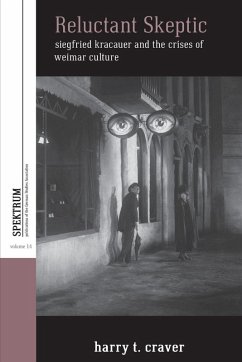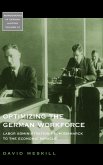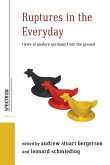The journalist and critic Siegfried Kracauer is best remembered today for his investigations of film and other popular media, and for his seminal influence on Frankfurt School thinkers like Theodor Adorno. Less well known is his earlier work, which offered a seismographic reading of cultural fault lines in Weimar-era Germany, with an eye to the confrontation between religious revival and secular modernity. In this discerning study, historian Harry T. Craver reconstructs and richly contextualizes Kracauer's early output, showing how he embodied the contradictions of modernity and identified the quasi-theological impulses underlying the cultural ferment of the 1920s.
Hinweis: Dieser Artikel kann nur an eine deutsche Lieferadresse ausgeliefert werden.
Hinweis: Dieser Artikel kann nur an eine deutsche Lieferadresse ausgeliefert werden.








